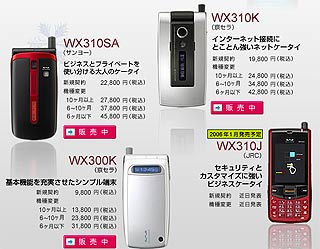FY2005 Mid-Term Demand Forecast for Telecommunication Equipment
CIAJ’s Research and Statistics Committee has compiled its annual mid-term demand forecast. A slowdown in new subscribers pulled the growth rate of cellular handsets down, a break in capital investments by fixed telecommunication carriers decreased demand for modems and central office switching systems, and the transition to multipurpose equipment had a negative impact on facsimiles for business-use. On the other hand, continued healthy growth was seen for business and personal multipurpose equipment, optic communication equipment and routers. Strong interest in security and contingency planning for disasters pushed demand up for fixed communication equipment and other consumer equipment, migration of public PHS users to new carriers, and PHS subscriber growth due to new services contributed to the CIAJ forecast of flat overall growth at 4,138.5 billion yen (negative growth of 0.4% over the previous year) for FY2005. The midterm outlook for the telecommunication equipment market from mid FY2006 onward expects steady market growth, with further migration from 2G to 3G mobile communications, the transition from ADSL to FTTH, the switch to IP, and the lasting popularity of multipurpose equipment.


 “Despite the high prices, there were huge line-ups waiting to buy the new Willcom PHSes,” said my Kiwi pal in an email last night. It looks like some of Willcom’s PHS phones appear to be selling well on the strength of flat-rate voice and data and handsets that are at least comparable to the high-end 3G cellular models from the Big Three carriers. Is this a hint of price destruction to come when the new licensees jump into the market in 2006?
“Despite the high prices, there were huge line-ups waiting to buy the new Willcom PHSes,” said my Kiwi pal in an email last night. It looks like some of Willcom’s PHS phones appear to be selling well on the strength of flat-rate voice and data and handsets that are at least comparable to the high-end 3G cellular models from the Big Three carriers. Is this a hint of price destruction to come when the new licensees jump into the market in 2006?